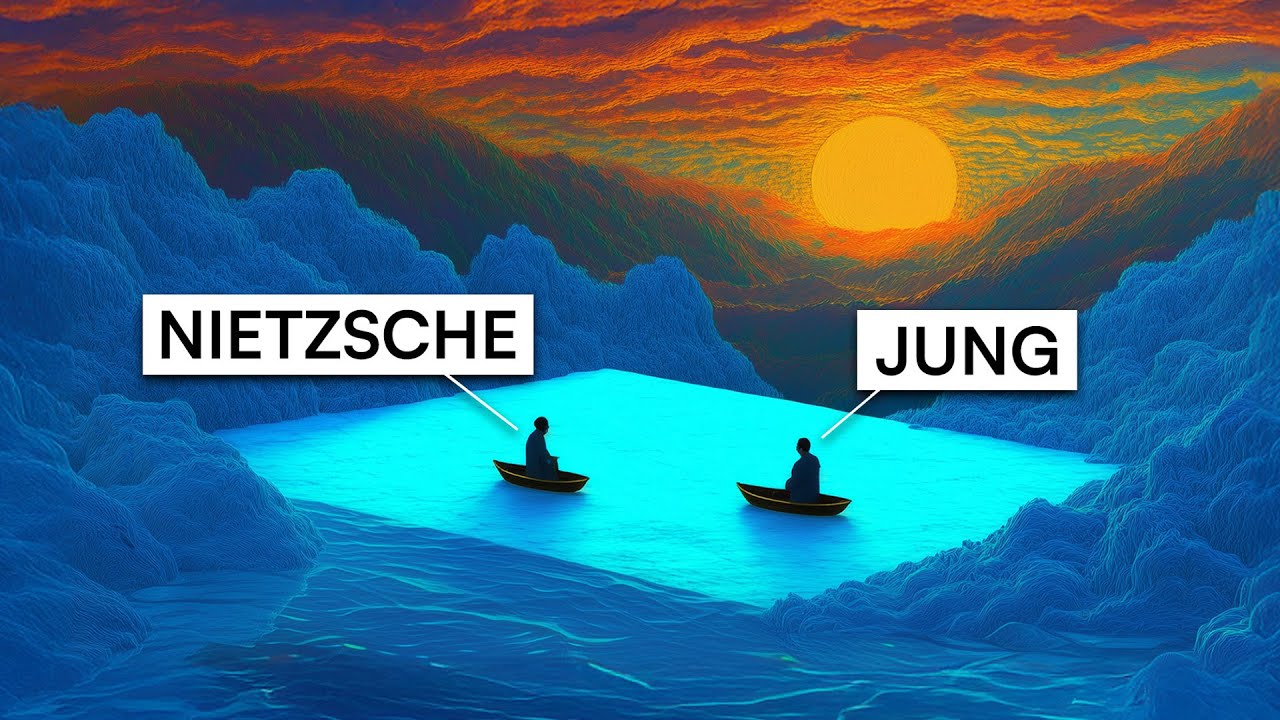The debate between Nietzsche and Jung explores what makes life worth living, with Nietzsche advocating for radical self-creation and embracing existential risk to forge new values, while Jung emphasizes engaging with the unconscious and archetypal forces to achieve meaningful transformation. Their differing views highlight a tension between heroic, solitary struggle and integrative, therapeutic growth, offering complementary insights into courage, meaning, and human complexity.
The debate between Friedrich Nietzsche and Carl Gustav Jung centers on the question: What makes a life worth living? Nietzsche champions the idea of radical self-creation, urging individuals to forge their own values and paths rather than inherit borrowed ones. He dismisses conventional pursuits like comfort and approval as mere sleepwalking, advocating instead for a life of heroic affirmation that embraces existence fully, even in its cruelty. For Nietzsche, true living involves the “will to power” and the creation of something entirely new, regardless of societal judgment.
Jung responds by emphasizing the role of the unconscious and shared human nature in shaping the self. He argues that individuals are not creating from nothing but are influenced by deep archetypal forces within the psyche. Genuine transformation, according to Jung, requires confronting these universal patterns—often uncomfortable truths about humanity—rather than attempting to transcend or ignore them. He views this engagement as essential to realizing the full scope of human potential, cautioning against the madness and isolation that can result from ignoring these depths.
The two thinkers further debate the nature of meaning, suffering, and creativity. Nietzsche is skeptical of inherited meanings and views much of it as a lie people tell themselves to avoid responsibility. He values the creative act that emerges from confronting the void, even if it lacks cosmic justification. Jung, while acknowledging the necessity of meaning, sees recurring psychological patterns as factual realities of the human condition that help individuals navigate suffering. Both agree that creativity and transformation involve engaging with chaos, but differ on whether this engagement is primarily about coping or about forging new values and culture.
A key point of divergence lies in their views on strength and resilience. Nietzsche sees strength as the will to power that enables one to break free from all constraints and create ex nihilo, while Jung highlights flexibility and the capacity to hold paradox as crucial. Jung stresses the importance of psychological preparation and guidance to survive encounters with the unconscious, whereas Nietzsche valorizes the risk of total annihilation as necessary for true revelation. Nietzsche criticizes therapeutic approaches as potentially limiting, producing safer but less revolutionary individuals.
In conclusion, the debate reveals a profound tension between the heroic, solitary struggle for self-overcoming and the therapeutic, integrative approach to human transformation. Nietzsche’s vision is one of radical, often dangerous creativity that demands sacrifice and risks madness, while Jung’s approach seeks to navigate and harness the unconscious forces with care to foster sustainable growth. Both perspectives offer valuable insights into what it means to live a life worth living, leaving the audience to reflect on the balance between courage, meaning, and the acceptance of human complexity.
